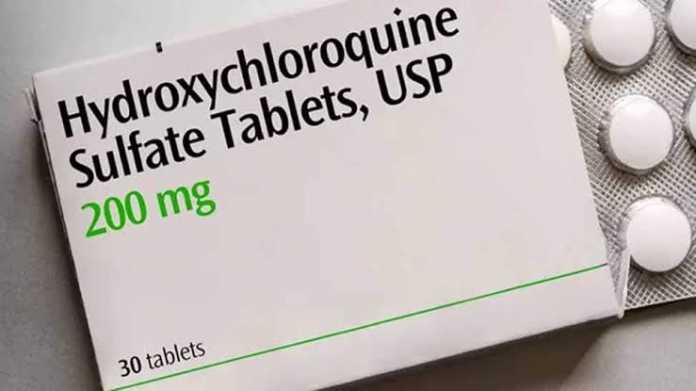
The National Agency for Food and Drug Administration and Control, NAFDAC, has vowed to continue all clinical trials for hydroxychloroquine as a potential treatment for COVID-19, despite the World Health Organization’s decision to suspend it.
EyewitnessMedia gathered that the Director-General of the agency, Professor Mojisola Adeyeye stated this on Tuesday while addressing newsmen, adding that there were proven records that hydroxychloroquine had been effective in the treatment of COVID-19 patients.
According to her, this is most effective in those at the mild stage of the virus. “There is data to prove that hydroxychloroquine worked for many COVID-19 patients. Therefore, we would continue our own clinical trials in Nigeria. Hydroxychloroquine has been proved to work at a mild stage. So the potency depends on the severity of the disease in the patient’s body,” she said.
The UN agency had on Monday said it had ‘temporarily’ suspended the clinical trials of hydroxychloroquine as a potential treatment for COVID-19 over safety concerns, adding that the decision followed a study in The Lancet that the use of the drug on COVID-19 patients could increase their likelihood of dying.
“The Executive Group has implemented a temporary pause of the hydroxychloroquine arm within the Solidarity Trial while the data is reviewed by the Data Safety Monitoring Board,“ WHO Director-General, Tedros Ghebreyesus had said.
Chloroquine is a synthetic drug introduced in the 1940s. It is a member of an important series of chemically related agents known as quinoline derivatives. Hydroxychloroquine is a related compound that was introduced in 1955.
Algeria Backs Hydroxychloroquine Despite WHO Dropping Trials
MEANWHILE, officials said Algeria will continue to use the drug hydroxychloroquine against the novel coronavirus, a member of its scientific committee said, despite the World Health Organization suspending clinical trials of such treatments.
“We’ve treated thousands of cases with this medicine, very successfully so far,” said Mohamed Bekkat, a member of the scientific committee on the North African country’s Covid-19 outbreak.
“We haven’t noted any undesirable reactions,” he told AFP.
Public figures including US President Donald Trump have backed the drug as a virus treatment, prompting governments to bulk buy — despite several studies showing it to be ineffective and even increasing COVID-19 hospital deaths.
Bekkat’s comments came days after medical journal The Lancet published a study of nearly 100,000 coronavirus patients, showing no benefit in those treated with the drug, which is normally used against arthritis.
The study found that administering the medicine or, separately, the related anti-malarial chloroquine, actually increased Covid-19 patients’ risk of dying.
Both drugs can produce potentially serious side effects, particularly heart arrhythmia.
Bekkat, who is also head of the Order of Algerian Doctors, said the country had not registered any deaths caused by hydroxychloroquine.
Algeria decided in late March to treat patients infected with the Covid-19 illness with a combination of hydroxychloroquine and azithromycin, an antibiotic.
“For confirmed cases, we use hydroxychloroquine and azithromycin. Then there is a whole protocol for serious cases,” a health ministry official told AFP on Monday.
Thousands of people infected or suspected of being infected with the virus have received such treatments, said doctor Djamel Fourar, the scientific committee’s spokesman.
The World Health Organization said on Monday it had temporarily suspended clinical trials of hydroxychloroquine as a potential treatment for coronavirus, following the Lancet study.
That study looked at records from hundreds of hospitals, comparing a control group with patients treated with hydroxychloroquine or chloroquine, either alone or in combination with antibiotics.
At the end of the study, of those treated with hydroxychloroquine or chloroquine alone, 18 percent and 16.4 percent respectively had died, compared with nine percent in the control group.
Those given each drug in combination with antibiotics were even more likely to die — 23.8 percent with hydroxychloroquine.
Bekkat argued that the Lancet study had led to “confusion” as it “seems to concern serious cases in which hydroxychloroquine is of no help”.
“There is evidence that the use of chloroquine by Arab and African countries has proven to be effective when used early,” he explained.
Algeria’s coronavirus outbreak is one of the worst in Africa, with a total of 8,503 cases and 609 deaths officially recorded since 25 February.
AFP
Kindly contact us @ Naijalivetv@gmail.com
Call or Whatsapp: 07035262029, 07016666694, 08129340000










